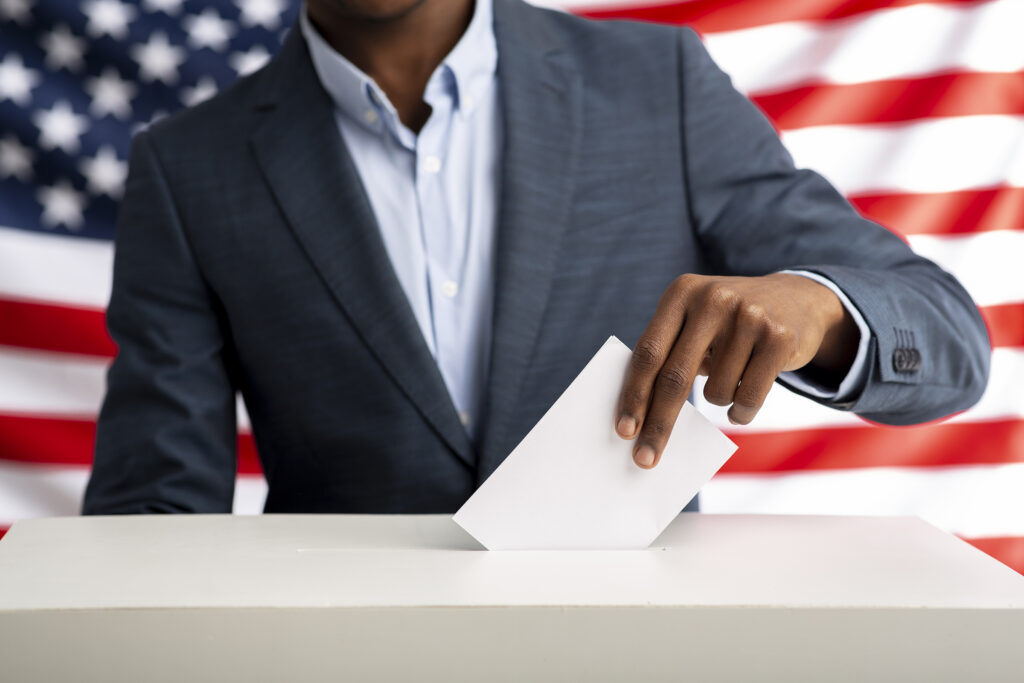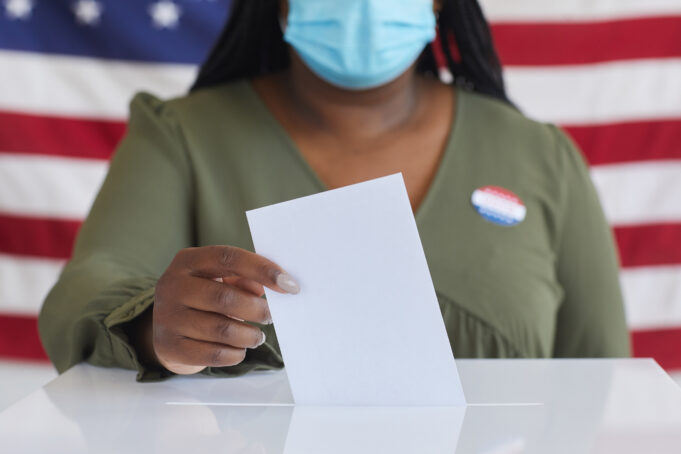The question of the day is what do Black people want and how do we get it? It is safe to say that most in the Black electorate want to live in communities that are economically strong. We want safe neighborhoods free of violent crime. We want a healthy relationship with police that does not involve racial profiling and the resultant brutality and killing of Black men and women by law enforcement. We want good schools for our children where they can get an education that not only prepares them for a global economy but also roots them in the beautiful cultural heritage of their people.
What may surprise most readers is that when we consider the collective wants and needs of the Black community in America we arrive at a startling conclusion. That conclusion is that everything we want and desire as a collective mass or body of people can be achieved without voting and with little to no involvement in electoral politics.
Certainly, this conclusion may anger traditionalists. But let’s face the grim reality of our times. Barack Obama got 92 percent of the Black vote in his victory to become America’s first Black president. His victory is by far the crowning achievement of all who say, “we’ve got to vote our way out of this.” For many years now, there have been Blacks holding office in every level of government; local, state and federal. And to have a Black president was a previously unbelievable feat. Yet despite this achievement, the Black community’s needs and wants today are virtually identical as to what they were in 1963 when the Most Honorable Elijah Muhammad penned his “What the Muslims (Black People) Want.”

Again, consider that we have voted for judges, mayors, governors and even now for a Black president twice, yet we are still a community in need. Poverty is high among us; disease is prevalent among us; blight and crime are problems for us, and we still have a pitiful educational system that we depend on to educate our children.
If electoral politics isn’t the answer, then how do Black people get what we want?
Ethnic Enclaves
The social conditions within immigrant communities in America are in stark contrast to those within the Black community. Scholars like to refer to immigrant communities as “Ethnic Enclaves.” An ethnic enclave is defined as “Usually urban areas, within which culturally distinct minority communities maintain ways of life largely separate from those of the generally larger communities that surround them”
As the Honorable Minister Louis Farrakhan has pointed out most recently in his profound analysis of the National Presidential Election, the major cities of America and their ethnic enclaves must become the new model for the disparate and disunified Black community—affectionately and pejoratively dubbed “the hood.”
Chinatown, Koreatown, Little Haiti, Little Africa, Greek Town, and the more than 850 ethnic enclaves in America are examples of something that academics refer to as the “No Show Paradox.” I am not a political scientist and most who read this will not be. So I won’t bore you with the complex mathematical and academic jargon related to the specifics of this concept within the academy.
Immigrant communities thrive in spite of being poorly represented in electoral politics. They are examples of the “Do For Self” mantra and philosophy of the Most Honorable Elijah Muhammad.
In one example, the New American Leaders Project is a part of an effort to increase the level of political participation among Asian and Hispanic immigrants. Their report, entitled “States of Inclusion: New American Journeys to Elected Office,” points out that Blacks make up 9 percent of all state legislators, Asians only 2 percent and Hispanics are 4 percent of the 7,388 total of state legislators. And even though state level elections have a potentially greater impact on the locales that they have created their enclaves inside of, the immigrant communities are clearly not emphasizing political participation as a way to live “the American dream.”
As far as the 2012 National Election is concerned, the Pew Research Center points out that among eligible voters, Blacks voted at 67 percent while Asians voted at 47 percent and Hispanics at 48 percent. According to the philosophy of non-economic liberalism, such higher voter turnout by Blacks should mean that social conditions within the Black community would be far better than those within immigrant communities and enclaves, but this is not the case.
On Crime
Immigrant communities have less crime than the Black community. At the University of Texas in El Paso (UTEP), Professor Theodore Curry, Ph.D., is an associate professor of criminal justice who is leading a research project that is challenging popular beliefs about crime among immigrants. “Curry pointed out that there are interesting theories addressing this issue, which has blindsided criminologists and other experts. One is that immigrant neighborhoods have lower crime rates because they are stronger communities of families that are more strongly connected to each other. In addition, immigrants tend to be working even though they may be poor, so they are invested in their community.”
On Economics
According to a CNN Money report prepared by Jose Pagliery entitled “On the Rise: Immigrant Entrepreneurs,” there is a strong “Do For Self” zeitgeist among foreign born workers and citizens. Pagliery writes, “Immigrants created 28% of all new firms last year. They were also twice as likely to start a new business when compared to those born in the United States. It’s a notable shift. Nearly all new firms are small, and many are hiring new workers, seeking small business loans and shaking up established industries.”
On Education
Writer Lee Dye authored a report for ABC News entitled Why Immigrants’ Children Do Better in School that plainly stated “Children who immigrate to the United States with their families are likely to outperform kids with a similar background who were born here. And when they grow up, their own children are also likely to do better than their peers.”
Dye’s report highlights and discusses the findings of a study performed by Johns Hopkins University. In preparation for Dye’s article she interviewed sociologist Lingxin Hao, who serves as the lead author of the study. According to Dye, “Hao offered one theoretical explanation for why immigrant children do so much better than their peers: ‘It’s about family,’ she said. ‘The parents have an optimistic view of bringing up their children in the United States. One important motivation for immigrants is to improve their children’s lives. The United States is the land of opportunity. If we work hard, we will get it.”
Dye’s report concludes, “New immigrants tend to settle in communities that have many other residents from the same part of the world, thus buttressing the “cultural tools” that might otherwise diminish over time.” And according to lead researcher Hao, “If you go to Chinatown you see bankers there, but you also see people washing dishes. There’s many different people there. So even if your parents aren’t highly educated, you have other role models in your community.”
So Why Do People Vote?
In his short blog written in 2012 entitled The Paradox of Voting, Posner lists several reasons that people vote:
Some people vote because the political campaigns make it costly for them not to vote—one technique in “get out the vote” drives is pestering people to vote so that they will feel uncomfortable not voting.
Some vote because they think that it will encourage others to do so.
Some vote because they consider it a civic duty.
Some voting is purely expressive—a way of expressing strong feelings pro or con a candidate (or pro one and con his opponent);
And finally people interested in politics like to vote to convince themselves and others that their interest is serious—they are willing to put their money (not money exactly, but the cost in time and bother of voting) where their mouth is.Demetric Muhammad, a Nation of Islam student minister, is based in Memphis and a member of the NOI Research Group. Read more from him at www.researchminister.com. This article is excerpted from his essay entitled The NO-Show Paradox: Can the Black Community Get What It Wants By Not Voting publishe













